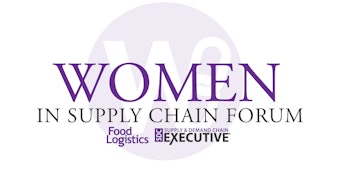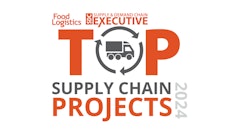Providers now offering an Authenticated RFID model to add layer of security for the pharmaceutical supply chain
Dallas and Mountain View, CA — June 1, 2005 — In the battle against counterfeit drugs in the pharmaceutical supply chain, Texas Instruments and VeriSign Inc. have introduced a model for Authenticated RFID (radio frequency identification) that they said has the potential to enhance security and chain-of-custody controls.
The Authenticated RFID model will combine ISO/IEC standard 13.56 MHz RFID and public-key infrastructure (PKI) technologies in a two-stage approach to fight the counterfeit drug problem. Texas Instruments and VeriSign are developing the Authenticated RFID model to support item-level authentication at the pharmacy, and the implementation over time of a supply chain infrastructure to validate transactions at any point along the chain of custody.
The providers said the Authenticated RFID model proposes an enhancement to item-level product security in real-time by creating stronger authentication between the tag and any Authenticated RFID reader from the point of manufacture to the point of sale. 3M, a provider of security solutions including RFID tracking and authentication systems, will supply the Authenticated RFID readers to support the new model. By initially deploying the technology at the point of manufacturing and the point of dispensing, the pharmaceutical industry can obtain a higher level of item-level authentication to thwart counterfeit products.
This Authenticated RFID model employs real-time, off-network authentication at the dispensing pharmacy. According to the providers, the integration of RFID and PKI technologies would facilitate identification of unique items, automate data collection and provide authentication at multiple read points as a product moves through the supply chain.
Through the use of standards-based public-key technology, digital signatures and data encryption, the Authenticated RFID model would enable enterprises to create and validate "ownership" during multiple states of shipping and receiving, the providers said. The use of PKI would enable products to be authenticated by a trusted third party, and encrypt information sent between parties. VeriSign currently provides encryption and authentication services for 93 percent of the Fortune 500 and the top 10 U.S. banks.
"This new model is an important step forward in the fight against counterfeit drugs, extending the track and trace capabilities of RFID by adding real-time off-network authentication," said Julie England, vice president of Texas Instruments and general manager of Texas Instruments RFid Systems. "Working with the ISO/IEC and EPCglobal Inc. international standards organizations, we're seeking to leverage existing technologies and infrastructure to address the need for item-level pharmaceutical authentication to help provide a safe and secure supply chain."
Brian Matthews, vice president of VeriSign's Naming and Directory Services, commented, "One of the more difficult challenges faced by manufacturers and retailers alike is trying to determine the custody of a product at the various stages of its journey along the supply chain. VeriSign is familiar with using authentication to verify who's real and who's not in online transactions. We're bringing that expertise to bear on the problem of defining 'what's real,' and on recording ownership of products as they move through a complex shipping process that begins with manufacture and ends with the display on store shelves."
Product counterfeiting and diversion is a significant problem today, particularly in the pharmaceutical supply chain. The problem threatens corporate revenues, and more importantly, consumer safety. The companies said that the Authenticated RFID model envisions bringing together a combination of hardware and service-based architecture to provide manufacturers with multiple lines of defense in addressing this issue. The Authenticated RFID model as proposed today offers unique RFID tags, digital signing of tags and supply chain event validation.
For more information on trends relating to radio frequency identification, follow this link for an extensive listing of SDCExec.com articles, featuring the latest research findings on the RFID, including adoption, return on investment and barriers to implementation.



























